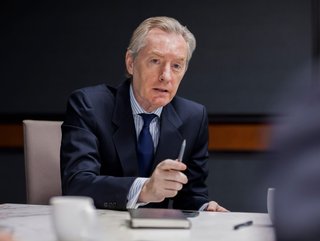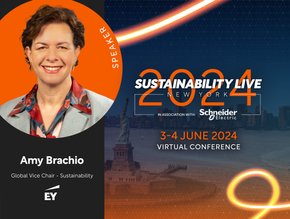How is ‘Woke Capitalism’ Row Impacting ESG at Major Firms?

In certain areas of political discourse, Environmental, Social and Governance is interchangeable with the label ‘woke capitalism’.
The pushback against “the ESG movement” has included West Virginia in the US blocking its use in all investment decisions and banning state fund managers from considering ESG factors in their investments on behalf of the state.
HSBC, Citi, Northern Trust and TD Bank are the latest global institutions to be barred from providing banking services to the state, joining BlackRock, Goldman Sachs, JPMorgan Chase, Morgan Stanley and Wells Fargo on its Restricted Financial Institution List.
West Virginia Treasurer Riley Moore says they are engaged in “boycotts” of fossil fuel companies – a sentiment that is in tune with a wider movement by Republican politicians in the US, designed to “protect individuals from the ESG movement”.
Moore said: “We cannot allow institutions that seek to destroy our state’s critical energy industries and the economic activity they generate to also profit from handling the very taxpayer dollars they seek to diminish.”
The banks seem bemused by the decision.
A Citi spokesperson said: “Citi is not engaged in a boycott of energy companies as evidenced by the fact that we continue to lend to these companies and have substantial credit exposure to the industry.
“We believe our policies are consistent with our regulatory requirements regarding risk management as well as with West Virginia law.”
An HSBC spokesperson in the US said: “We seek to work with – not boycott – energy companies. Our policies anticipate that we will continue to provide corporate lending and capital markets transaction support to energy-based customers to both maintain supplies as well as support an orderly and just transition that helps with the creation of new jobs.”
Another example came in Florida last year, where Republican Governor Ron DeSantis signed a bill into law that barred state and local officials from investing public money to promote ESG goals and prohibited municipalities from selling ESG bonds.
But, if those who dislike ESG think they are gaining momentum, they should be aware of the pushback against the pushback.
For, in the Great ESG Face-Off, many of the banks are not blinking. And some are bristling with determination to not be derailed.
Standard Chartered Chief Executive Officer Bill Winters says: “This is not philanthropy, this is not political wokeness. This is to do the right thing for the planet – do the right thing for your business. That’s what we’ve been doing.”
In case there is any lingering doubt, he adds: “We said we’re going to be thought leaders and action leaders in terms of policies around net zero and our clients have completely engaged with us. We’ve seen no backing away from that at all.”
A trawl of the annual reports of many of the biggest banks and other global companies, aided by ‘Ctrl-F’, highlights hundreds of references to ‘ESG’ and ‘sustainability’.
Citi, which has a dedicated ESG Council, writes: “Our 2030 US$1tn Sustainable Finance Goal spans our business offerings and helps to illustrate how our Net Zero Plan is integrated across Citi.
“As the most global bank, we recognise the role we can play in supporting our clients’ transitions toward a more just and sustainable low-carbon economy.”
Tellingly, the company adds that its actions include “sustainable debt issuances such as thematic bonds and loans tied to ESG performance”.
Bank of America Chair and CEO Brian Moynihan, introducing its Annual Report 2023, writes: “I’m sometimes asked why Bank of America invests so much energy and money in clients who are engaged in clean energy transition. The answer is simple: it’s good business.
“Our commitment to sharing success with communities also demands we help society accelerate toward a secure and sustainable lower-carbon future. We are doing so by mobilising capital and working alongside our clients and partners to address the need for energy affordability, sustainability and security.”
In recent weeks, JPMorgan Chase has set up a special ‘green group’ to coordinate and inform its work around the green economy and related infrastructure investment.
Tim Berry, Global Head of Corporate Responsibility, adds that the company has brought sustainability together with philanthropy, government relations, research and policy, and community engagement functions to tackle inclusive economic growth as one team.
Morgan Stanley’s Executive Chairman James P. Gorman reinforces the impression that the giants of the global banking world remain solidly behind carbon reduction and green investment.
He says: “At Morgan Stanley, we are focused on integrating ESG initiatives into our firm’s core competencies. With our best-in-class research, advisory and investing capabilities, Morgan Stanley is in a unique position to advance sustainability across capital markets.”
Back to Standard Chartered, which has refined its targets and now aims to reach net-zero carbon emissions within its own operations by 2025 and net zero in its financed emissions by 2050.
Bill Winters says environmentally-conscious investing can be good for business.
And, while he recognises that “some people are going quiet” because of a “toxic, times 10” atmosphere in certain parts of the world, he is not about to water down the bank’s ESG intentions, saying: “I mean, I do want to wake up one day and have a planet so if that makes me woke, shoot me.”
Beyond big banking, other major companies appear unfazed by the noise around ESG commitments and investments.
Renata Jungo Brüngger, Member of the Board of Management, responsible for Integrity, Governance & Sustainability, Mercedes-Benz Group AG, says: “Sustainability and ESG are integral to every aspect of our business, especially in times of transformation.”
Professor Fabrizio Ferraro, head of the Strategic Management Department at IESE Business School and academic director of IESE’s Institute for Sustainability Leadership, says the most likely impact of the “anti-ESG noise” is that companies will resort to “quiet ESG”, a more discreet approach.
Writing on cfi.co, he adds: “But this distracting wave of anti-ESG sentiment won’t move the needle at a time of such seismic change. Climate change continues to be the most common reason for portfolio exclusions.
“Despite stellar profits due to the Russian invasion of Ukraine, fossil fuels are increasingly being shunned.”
******
Make sure you check out the latest edition of Sustainability Magazine and also sign up to our global conference series - Sustainability LIVE 2024
******
Sustainability Magazine is a BizClik brand







